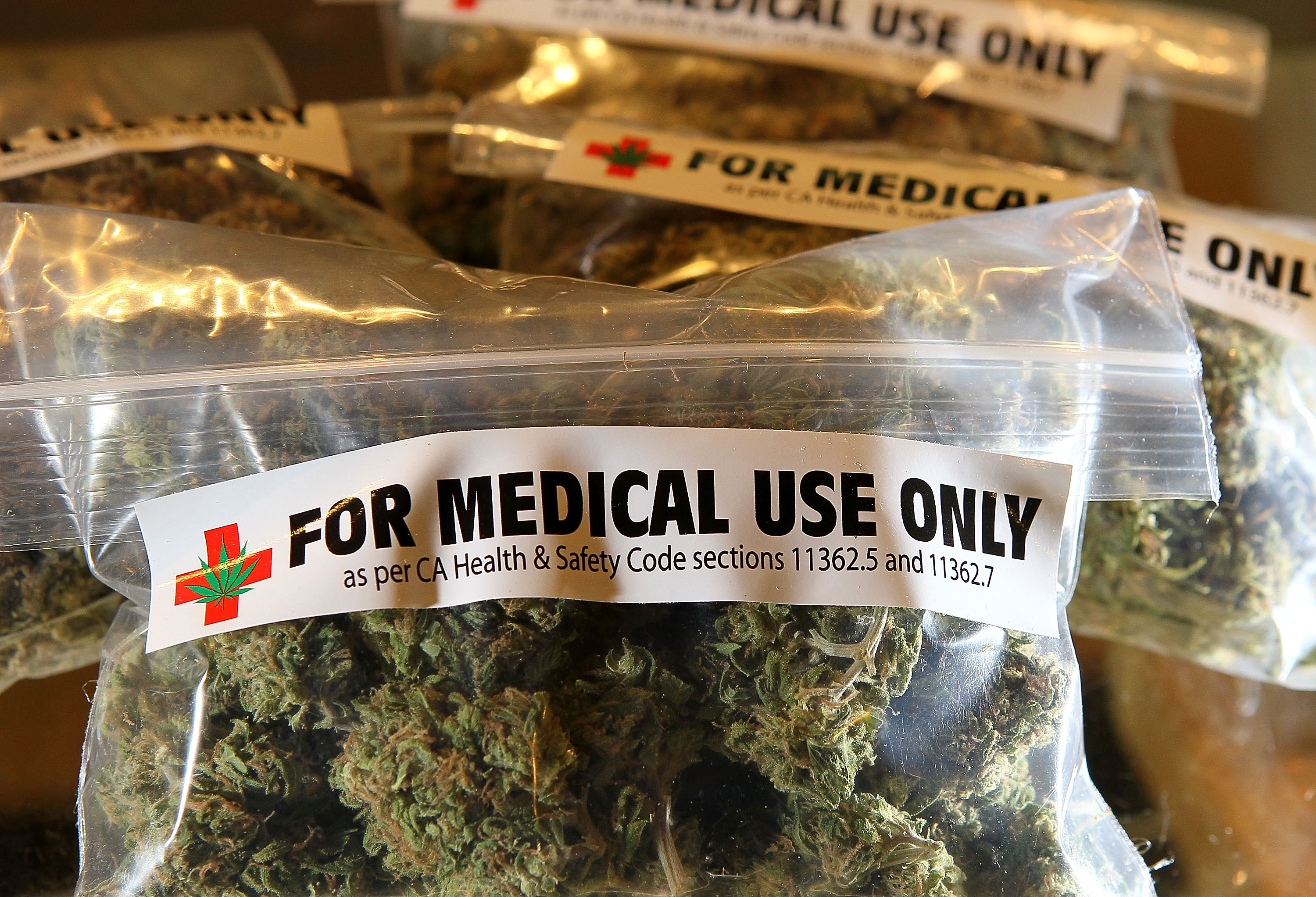Obtain Your Medical Marijuana Card Clinton MS Swiftly and Quickly
Obtain Your Medical Marijuana Card Clinton MS Swiftly and Quickly
Blog Article
Shedding Light on What Medical Marijuana Can Treat: an Extensive Evaluation of Its Restorative Residences
In current years, there has been a growing rate of interest in the restorative capacity of medical marijuana. Study has suggested that this plant, with its selection of substances, might hold pledge in resolving numerous medical conditions. From persistent pain monitoring to epilepsy therapy, and from nausea or vomiting relief to anxiety reduction, the range of its possible applications seems comprehensive. While anecdotal evidence is plentiful, an extensive assessment of the scientific information pertaining to the effectiveness of medical marijuana in treating these problems is required. This evaluation aims to offer a nuanced understanding of the current landscape of medical cannabis as a potential restorative representative, clarifying its capabilities in an extra comprehensive manner.
Chronic Discomfort Management
Chronic pain management stays a crucial aspect of treatment, requiring an extensive technique for effective treatment. In recent years, clinical cannabis has actually become a possible restorative alternative for people experiencing chronic discomfort conditions. The endocannabinoid system, which plays an essential role hurting modulation, has been targeted by cannabis-based therapies to boost and ease signs and symptoms lifestyle for clients.

Moreover, clinical marijuana provides an encouraging option for people who experience excruciating negative effects from traditional pain drugs. Its capability to address discomfort via a different device makes it a useful addition to the collection of treatments offered for chronic discomfort management.
Epilepsy Therapy Prospective
Medical marijuana has revealed promising potential in the therapy of epilepsy, supplying an unique healing technique for taking care of seizures in individuals. Epilepsy is a neurological problem defined by persistent seizures, impacting individuals of every ages. Conventional therapies for epilepsy consist of antiepileptic drugs, but these medications may not work for all people and can have considerable adverse effects.
Study on using clinical cannabis for epilepsy has disclosed encouraging outcomes. Cannabidiol (CBD), a non-psychoactive compound located in cannabis, has actually been particularly highlighted for its anticonvulsant properties. Research studies have actually shown that CBD can lower the regularity and intensity of seizures in individuals with treatment-resistant types of epilepsy, such as Dravet syndrome and Lennox-Gastaut syndrome.
Moreover, the FDA has approved a CBD-based medicine, Epidiolex, for the therapy of seizures linked with these serious kinds of epilepsy. This landmark highlights the growing acknowledgment of clinical marijuana as a useful healing choice for handling epilepsy and gives hope for people who have not responded well to standard treatments.
Nausea Relief Conveniences
The alleviation of nausea or vomiting through making use of cannabis has been significantly recognized for its restorative benefits in different medical conditions. Nausea or vomiting and throwing up prevail symptoms experienced by individuals undertaking radiation treatment, those with food poisonings, and people with chronic discomfort conditions. Medical marijuana, with its active compounds such as THC and CBD, has shown pledge in supplying remedy for nausea or vomiting.

Furthermore, medical cannabis offers an all-natural option for people who do not respond well to standard anti-nausea medicines or who experience serious side effects from these medicines. Individuals going through chemotherapy, particularly, have actually reported substantial improvements in their lifestyle when utilizing cannabis to manage nausea or vomiting. As research around continues to grow, clinical cannabis is progressively being considered as a beneficial alternative for queasiness alleviation in various clinical setups.
Anxiety Reduction Impacts
Researches have shown the potential of marijuana in reducing anxiety signs and symptoms via its communication with the endocannabinoid system. The endocannabinoid system plays an essential duty in managing emotions, consisting of anxiety, by preserving homeostasis in the body. Cannabinoids in cannabis, such as THC and CBD, interact with the endocannabinoid receptors in the mind, particularly the CB1 and CB2 receptors, to modulate anxiety-related reactions.
People with conditions like generalised stress and anxiety problem (GAD), social anxiousness problem, and trauma (PTSD) may take advantage of the anxiolytic properties of marijuana (Medical Marijuana Clinic Clinton MS). Nevertheless, additional research study is needed to determine optimal does, delivery techniques, and long-lasting results on anxiety management.
Prospective for Inflammation Control
With its known anti-inflammatory properties, marijuana has actually shown assurance in potentially regulating inflammation within the body. Swelling is the body's natural reaction to injury or infection, yet when it becomes persistent, it can contribute to numerous conditions such as joint inflammation, inflammatory digestive tract condition, and even heart illness. Research study recommends that the cannabinoids discovered in marijuana, such as THC and CBD, can aid control the immune response and minimize swelling.
Research studies have shown that marijuana can connect with the endocannabinoid system, which plays a critical function in controling swelling. By targeting the cannabinoid receptors, marijuana compounds can modulate the immune reaction, causing a decrease in swelling levels. This makes marijuana a potential candidate for handling inflammatory problems where traditional therapies have failed.
Furthermore, cannabis-derived items like CBD oil have gotten appeal for their anti-inflammatory properties, with lots of individuals utilizing them as a natural solution for problems related to swelling. While more research study is needed to totally browse this site comprehend the devices behind marijuana's anti-inflammatory impacts, current findings show encouraging results for the potential use of clinical marijuana in regulating swelling.
Conclusion
Finally, medical marijuana has actually shown appealing therapeutic residential properties in taking care of persistent pain, treating epilepsy, soothing nausea or vomiting, lowering anxiety, and managing inflammation. Its possible benefits in different clinical problems highlight the value of further study and exploration into its medical usage. The proof recommends that medical cannabis might be a useful alternative treatment alternative for clients looking for remedy for a series of signs and symptoms and conditions.
In recent web link years, clinical marijuana has emerged as a prospective restorative choice for people suffering from persistent pain conditions.Medical cannabis has shown promising possibility in the therapy of epilepsy, using a novel restorative approach for taking care of seizures in individuals. As research study in this location continues to expand, medical marijuana is increasingly being considered as a valuable alternative for nausea alleviation in numerous clinical settings.
In final thought, clinical cannabis has revealed appealing healing residential or commercial properties in managing persistent discomfort, treating epilepsy, relieving nausea, minimizing anxiety, and managing inflammation. The evidence recommends that medical cannabis might be an important alternative therapy alternative for individuals seeking relief from a variety of problems and signs and symptoms.
Report this page